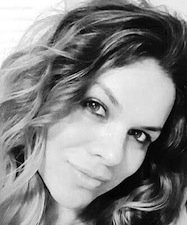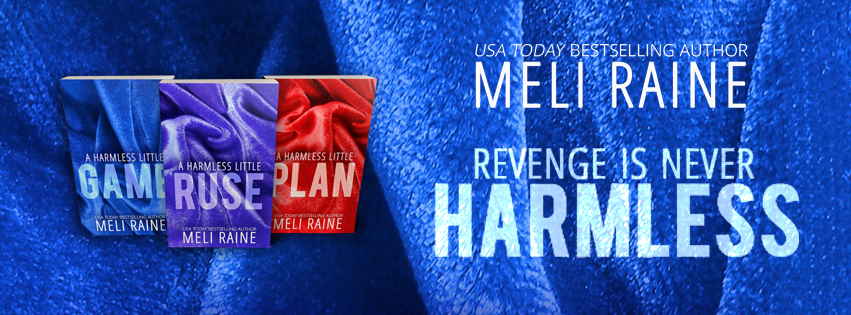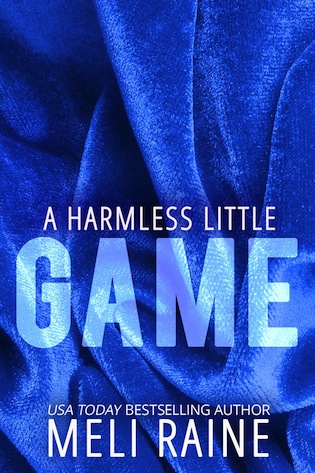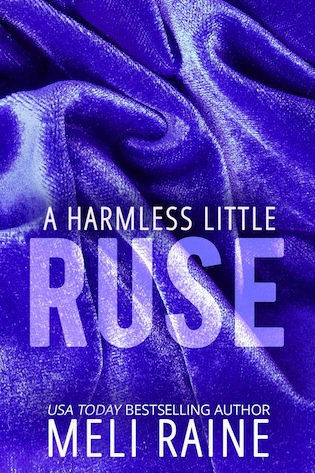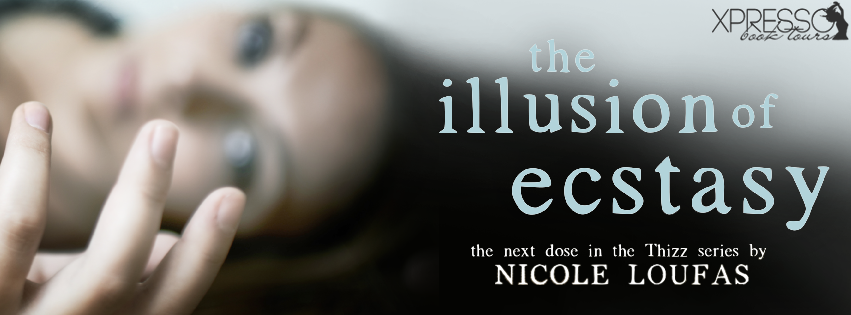 Dream Junkies
Anne-Marie Yerks
Dream Junkies
Anne-Marie Yerks
Publication date: August 8th 2016
Genres: Adult, Contemporary
Actresses in a Chicago comedy troupe, Daphne Corbett and Kristin Brewer share a stage as Jean and Jeanette, a pair of dim-witted legal secretaries upstaging the show’s headliners. When their performance attracts an ambitious entertainment agent from Manhattan, the girls move to New York with hopes of stardom and success. But the search for apartments and showbiz jobs takes them in different directions.
The shared journey leads them to understand that dreams are worth only as much as the struggle to achieve them and that the hardest part to play is yourself.
EXCERPT:
The Last Night
The Saturday before she left for New York, Daphne Corbett wrote her ex-boyfriend’s address on a Post-it note and boarded the Pink Line train to West Pilsen. From the CTA station, she walked down 18th Street to find the house where Alec was living with his new band, Saturn Box.
It was a sunny morning in late July and most of the shops hadn’t yet opened. At a corner liquor store, a group of men and a big dog were gathered around a cement stoop. A taxi cab pulled up and the driver tried to wave her over, but she shook her head and kept on going.
“Hey Miss,” one of the men called, blowing smoke from one side of his mouth, “can I ask you a question?”
Daphne ignored him and held her purse a little closer. This was the kind of neighborhood Alec liked because the big houses could be rented for cheap. Everyone could have a bedroom with plenty of the house left over for practice space and a common living area. Alex wasn’t onto mind the shabby people on the streets or the long trek downtown. He’d told her that he wasn’t home much anyway because his band was taking off.
She referred to the Post-it to locate the side street and turned. The house was halfway down the block, easy to find because of the spray-painted Saturn symbol on the side. Alec’s green Volvo station wagon was parked at the curb, loaded up with speakers and amps. Daphne remembered all the work they’d gone through finding the equipment at consignment shops and thrift stores. They’d had fun doing that.
A girl answered the door, a very thin girl with dishwater blonde hair and pierced eyebrows, wearing a greyish t-shirt. It had to be Lorene, the back-up singer. Alec had mentioned something about her the last time they’d talked.
“Is Alec here?” The girl assessed Daphne’s flowered skirt and white sandals with watery blue eyes.
“I think so.” Lorene stood aside and motioned toward the staircase. In one of the upstairs rooms, Daphne found Alec and his guitar in an upstairs room, stretched out on a ratty orange couch, writing in the composition book spread in his lap. It was the same composition book he’d used for song lyrics ever since she’d met him. His handwriting was so small it would take him a month to fill a page, so small that he probably could use that one notebook the rest of his life. Alec’s soul was in that book, she knew. It was in there even more than in his music.
“What brings you out here?” He sat up to make space on the couch, and she sat down. The curtains hanging in the window behind them were a pair that Daphne had brought when they used to live together in Wicker Park. In those days, they had struggled to survive on their tiny paychecks and a good yard sale find was gold.
She took a breath. “I’m moving to New York. On Monday.” Alec lit a cigarette and took a drag, eyes focused across the room at some equipment arranged in a semi-circle: a sheet music stand, a sax, and a keyboard. He smoothed his bangs. “What for?” Daphne told him about the agent who’d come to the comedy club and the audition for the sitcom. She gave all the details, the things that had happened over the past six months, more than what was necessary because she knew he would listen, that he still cared in a way that other people didn’t.
“So, you think this agent is for real?”
This was what everyone wanted to know. Her mother had asked the same question.
Are you sure this is the real thing, Daphne? I mean, it’s a big deal to pack up your whole life and move away . . .
“Pavia is definitely for real.” “Did you sign a contract?” “Sort of,” she told him. “Just for representation. Kristin has a role on the show, but I don’t.
Not yet. I’m going to do some modeling until they call me in.” “What’s this sitcom called?” Alec took another puff and then crushed the cigarette into the ashtray. “Streethearts. It’s about Chicago even though it’s filmed in New York. The idea is that the people who work in the little shops on the street get to know each other and fall in love and have affairs and misunderstandings. Typical kind of thing.” She didn’t tell him how much she had wanted to be on the show and how disappointed she was with the second-string position. But he probably knew.
“What about your sculpture? I thought you were going to set up a workshop someday.”
When she first began college, she had pictured herself alone in an art studio, digging her hands in the clay and wood-firing her work in an open field. But even after five years of classes and a senior show, she’d yet to sell a single piece. The fact there were galleries everywhere— even little ones that would take a chance on someone new—was another reason she was going to New York. She couldn’t take all the sculptures with her—there wasn’t enough space—but she had a nice set of slides that her new step-father and her mother had financed as a graduation gift.
“I’m not giving up on the idea, but I don’t know where it can go. The art world is so artificial. The money goes to the wrong place.” She was fighting the tired trend, the urban refuge type thing done a million times over that everyone couldn’t seem to get enough of: Virgin Mary statuettes glued onto banged up car doors, iron fencing worked into sex positions, bottles filled with plastic fruit floating in tea.
“You think acting isn’t artificial?” he asked. “Just take a look at the posters downtown, Daph. It’s the most artificial world there is. It will suck everything pure out of you and spit it back out in plastic.”
“Rock and roll is artificial, too,” she pointed out. “Those guitars you smash onstage are from the Salvation Army.”
“Come on, get real. You don’t even have a job in New York. Sorry to tell you this, but dreams aren’t edible. And they don’t pay bills. At least you have a job here, something a lot of people would like to do. And it makes people laugh. Why give it up for nothing?”
She didn’t tell that she had already given it up. She and Kristin had quit
Side Stitches the week before. Downstairs, a dog began to bark. Then another dog. Then another.
“Lorene has three mutts,” Alec said. He stood up and tucked the cigarette pack into the pocket of his flannel shirt. “She feeds them on the top of the kitchen table. Supposedly it’s demoralizing for them to eat from bowls on the floor. If I don’t get down there, she’ll give them my leftover meatloaf.”
They walked downstairs and stopped at the doorway. The sun was dancing over the tops of the cars in the streets. The flowers in the beds were pale and tired, burning into August.
“Send me a postcard,” he said. “From Manhattan?” she asked. “I don’t know. From anywhere. Surprise me. I’ll send you one too.” When they said goodbye at the front door, she caught a look in his eye, one that had never been directed at her before. Envy. But that was normal, she thought, walking north to the bus stop. Most people would be a little envious of someone whose career is about to take off. She tossed the Post-it note into the trash at the Metra stop. As the train pulled away, she could somehow still see the note through the grate—a bright little square of neon orange that seemed to be saying Stop.
At home on Sunday, Daphne listed the things left to do. Most of the furniture would stay where it was. The new tenant, an incoming grad student at DePaul, had bought the couch, chairs, and dining set for a few hundred bucks. Her mattress would go to the curb. The floors needed a good sweep and the baseboards should be washed. The refrigerator was frightening. And she should find the smoke detector and hang it up in the hallway again. She’d removed it months ago because it kept going off when she dried her hair.
Everything was packed into boxes except for her sculptures. In the morning, she would cover them with plastic and use the blankets in the rental van as cushioning. For now they lined the wall in front of a window, their angled shadows stretched across the wood floor. This would be their final hours in the light for quite a while, Daphne thought, running a hand over her favorite—a piece she called “Panda.” It was her simplest work— a tall smooth cylinder with a fist print in the middle—and most recent (she had brought it home the week before). The only exhibition it’d get would be in the living room unless she could find a way to include it in the things she took to New York. She wondered if Kristin would be a picky roommate, or if she would be too busy to care.
The mail had brought a birthday card from her mother with a check tucked inside.
Sorry I can’t be with you! The honeymoon is wonderful! Be careful. Love, Mom.
The envelope was postmarked and stamped from Jamaica with her mother’s new name in the upper left-hand corner: Elizabeth Peepers. She’d just married a man named Al Peepers on a cruise ship.
Daphne folded the check into her wallet. After tonight, when she unloaded the kilns for the last time, she would be unemployed. Money would be tight for a while, she knew. Apartments in New York were beyond expensive. The first time she’d skimmed the classifieds in
The Village Voice she thought it would be impossible to pay such prices. Pavia was the one who suggested that she and Kristin share for a while. That way all expenses were cut in half. Daphne was all for the idea, but she sensed that Kristin wasn’t completely sold. Then again, she hadn’t said “no” to it either.
Daphne called Kristen to make sure everything was set. “I’m not even close to ready,” Kristin said. “Are you?” “I’m packed, but I’ve got to get rid of some dirt and grime if I want my rent deposit back.”
Daphne considered the filth on the baseboards as Kristin went on.
“How much room will we have? I don’t think I can fit all my stuff into a car. Should we rent a van or something?”
“I thought you were getting us a van.” “I thought you were getting it.”
It was typical Kristin to forget something important like this, to assume that it would all fall into place without any effort on her part. Probably everything in her life had gone that way, Daphne thought. She had been spoiled by good looks, the perfect complexion, and long blonde waves—angelic features that contrasted with her on-the-brink sexuality. Everywhere she went people looked at her. Her boyfriends were the gullible, earnest types who fell into an obsessive love that drove them to seek her out twenty-four seven. Sometimes they appeared backstage after the show, eyes overloaded with longing and a kind of resignation beneath the yearning. They all knew that Kristin Brewer would cast them out with time, that they were mice in the claws of a cat who would play until the plaything became boring, then hunt for a new one. Maybe they didn’t, but they should have.
Daphne found a number for U-Haul.
Yes, Kristin could drive men crazy. She was much better at collecting suitors than she was at being an actress. Daphne was the one who had carried their show technically. Her minor at DePaul had been theatre arts and she considered herself professionally trained.
When she had auditioned for
Side Stitches, a comedy troupe that performed in a popular downtown club, she’d beat out dozens of other girls for a spot. Kristin, who had come out of nowhere, was given the other role. Together, they created a blonde and brunette duo called Jane and Janette, the silly secretaries whose incompetence with calendar software was the chagrin of their stuffy executive bosses. It was one of the troupe’s most successful ongoing skits and it got their faces featured on color posters and TV ads even if it didn’t make much money. This was how Pavia found them.
In the beginning, Pavia seemed like a sweet lady who demanded respect in the same way a schoolteacher might. She was tiny, only a little over five feet, with tight spiral curls that made her look like a Raggedy Anne. Daphne would have described her as “cute” on first impression, but then she began to take note of the points and angles in the woman’s face, the way she clenched her teeth when she was even slightly impatient, the way her dark eyes would whip and judge and assign anything in sight to a proper caste.
But she could be warm and friendly, too.
“I think you girls have more talent than you realize,” she’d said to Daphne and Kristin that first night. And it was only a few days later that she’d given them both representation contracts and sent them to an audition for a network television pilot called
Streethearts. The leading female role, a florist named Erica, was up for grabs.
“Now, both of you have a shot at this,” Pavia had said, leading them into the studio the day of the audition, her heels clicking on the tile. “The producers haven’t decided on a blonde or a brunette,” she paused and turned to them, her hand on the doorknob, “but they definitely want an emerging actress from Chicago. Make the most of that Midwestern drawl, the long O’s and A’s . . . don’t be ashamed of who you are.”
Daphne was a native of the Chicago area but had trained her accent away during drama school at DePaul. Kristin, who was from some small town in Wisconsin and had never taken acting lessons, had retained a farm girl nasal twang. When Daphne sat under the lights with the script and began reading the lines labeled ERICA, she was overly aware of the long O and A sounds and her accent sounded artificial. The casting people watched politely. They asked her a few questions and then told her she could leave. Pavia called later with the news that Kristin had won the role. “But it’s not all bad,” she’d said to Daphne. “The producers actually liked you. They don’t think you’re right for Erica, but they might have a role if the show takes off the way they hope it will. Just come with us to New York. We’ll find something for you.”
Daphne had wanted to kick herself. How could she have flubbed the audition? Why had Pavia screwed her up by mentioning accents right before she went in? Or was it Kristin’s big boobs? That’s what they cared about, of course. And being blonde.
“Think about it,” Pavia said. “You won’t be able to do the comedy show with Kristin gone anyway.”
“They could find a replacement, ” Daphne said flatly. “It wouldn’t be the same.” Pavia was right. There was a certain magic that made people laugh and it didn’t grow on trees. Besides, what if a replacement actress upstaged her or tried to take over? “OK,” she said. “I’ll go.” Then began the flurry of to-do lists, packing, job-quitting, and the good-bye party for
Side Stitches. The plan was that Pavia would drive them to Manhattan and they could stay in her neighbor’s sublet for exactly one week until they found their own place. Kristin signed up for the Actor’s Guild, and Daphne was ordered to put together a modeling portfolio. She didn’t have any pictures, though, so Pavia hired a photographer. Daphne had spent an afternoon and evening with him doing things like meditating on a park bench, standing on a train track, and leaning against a graffiti-splattered wall. A set of shots arrived in the mail the next week. Daphne thought they looked good, but Pavia said only that they were “passable.”
In the kitchen, Daphne took on her last task in Chicago, cleaning the refrigerator. For this chore she played her
Les Miserables soundtrack and sang along, imagining the glory of Broadway lights. Soon she’d be in New York living alongside some of the most famous, rich, and talented people in the world. The future stretched out a long and lavish pathway brimming with unnamed experience.
If only there wasn’t this nagging feeling, this sense that all wasn’t as she wanted it to be.
She glimpsed at her reflection in the window as she rinsed a mound of moldy chicken salad from a bowl. Maybe she wasn’t a glittery blonde, but she was tall and slender with shiny chestnut hair and a pretty face. She had a brilliant smile, a college degree, and a great sense of humor. And she was dedicated to her dream in a way Kristin could never even begin to understand. Dragging the trash out to the alley, she took a mental snapshot of the back porch of the apartment where she lived, the noble oak that shaded the porch, the busy road out front. Back inside, she lowered herself onto the couch that was no longer hers and closed her eyes. She assured herself that, with time, the nagging feeling would go away.
Her cat Mario snuggled into the crook of her knee, and that was how they both fell asleep their last night in Chicago.

Author Bio:
Anne-Marie Yerks is a fiction writer, essayist and journalist from the Metropolitan Detroit area. Her essays have appeared in the online editions of "Good Housekeeping," "marie claire," "Country Living" and "Redbook." She has work forthcoming in "Modern Memoir" (Fiction Attic Press) and in "Recipes With A Story" (Blue Lobster Books). Her novel, Dream Junkies, will be published in 2016 by New Rivers Press. Find her on Twitter @amy1620.









![Pageflex Persona [document: PRS0000447_00006]](https://www.xpressobooktours.com/wp-content/uploads/sites/3/2016/08/The-Marked-One-FINAL-Digital-Paperback.jpg)



![Pageflex Persona [document: PRS0000447_00006]](https://www.xpressobooktours.com/wp-content/uploads/sites/3/2016/08/FINAL-2016-660-Digital-Paperback-Penelope-Marshall-Unleashed-B01.jpg)
